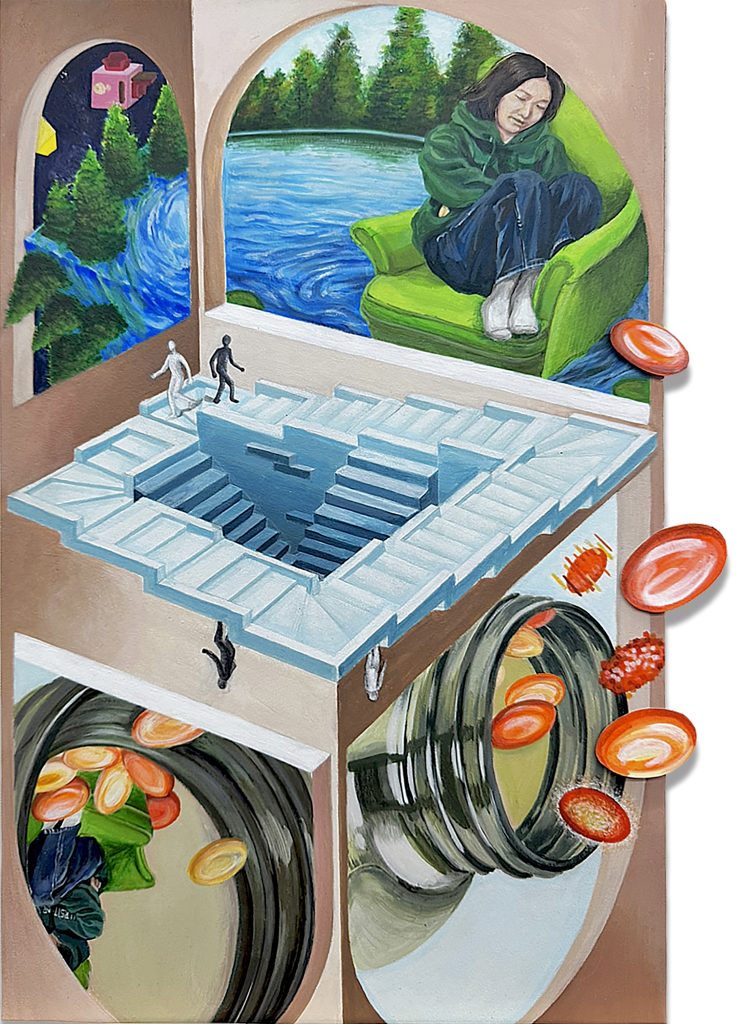Previously appeared in Romance Buds, and Butterflies
Asha sashayed across the London tavern floor, looking every bit the exotic, strikingly beautiful Indian ex-pat. As she walked, men turned on their barstools to regard her, thinking, I’d like some of that. But Asha was not available, at least not to them.
Ignoring the others, she stopped at a table in the center of the saloon, where sat an 80-ish man, gray at the temples, and with a slight tremor in his hands. He seized his cane and made to stand up, but Asha held up her hand to stop him.
“Don’t get up, Ari,” she said, taking a seat by his side.
Across the tavern, covetous men shook their heads, bewildered at Asha’s choice.
“Have you been waiting long?” she asked.
Ari shook his head no. He seemed to have difficulty speaking.
Suddenly Asha moved, leaning into Ari and throwing her arms about him and kissing him affectionately on the cheek. She squeezed him tight.
The spectators in the bar rolled their eyes and tossed back their drinks, puzzled by the apparent attraction of the old man to the stunning woman.
“What’s that all about, Fahey?” a large, attractive man dressed in the garb of a construction worker asked the bartender.
Fahey said, “I can’t say for sure where it began, Mike, but I’ve heard rumors from those that know one or the other of them. Ari was an upper class Brit in the colonial days. Some of them were right bastards but he was one of the good ones. He did what he could to help the locals. Asha’s family was quite poor, but Ari got her father a good job as a government bureaucrat. Got a good paycheck for signing papers, and making low-level decisions. As a result, Asha’s family and Ari’s socialized a lot. Asha’s family learned about Britain, and Ari’s family learned about India. When they first started socializing Asha was two years old, and Ari was a forty-year-old man with a wife the same age.”
“How old is she now?” inquired Mike.
Fahey shrugged. “Around 40? Anything else you want to know?” he asked archly.
The irony of the remark was lost on the other man. “Is she involved with the old man, or is she a…free agent?”
“My man,” said Fahey, with a knowing grin, “nothing in this life is free.”
“How about you introduce us?” asked Mike.
Fahey began to wipe down the bar. “You’re a little late,” he said.
“You mean…” began Mike.
Fahey nodded. “They’re married.” When Mike looked lost, the bartender continued, “Ari lived in India until about ten years ago, when he began to get dementia. Ari’s wife, Mabel, moved them back to London to their old home so he’d be in more familiar surroundings. About five years ago, his wife became terminal and she contacted Asha and she came to the city almost immediately. She moved in with them and took care of them both. Then, a year ago, when Mabel died, Asha and Ari got married so that it was acceptable for the culture for them to live together. You understand?
Mike did understand, and gazed with compassion and admiration across the tavern at a true love story.






